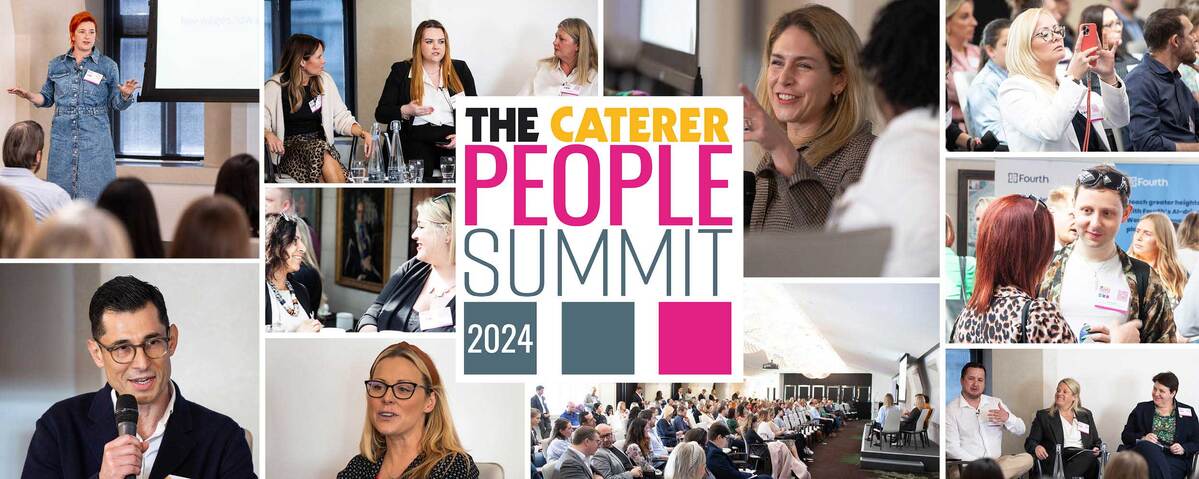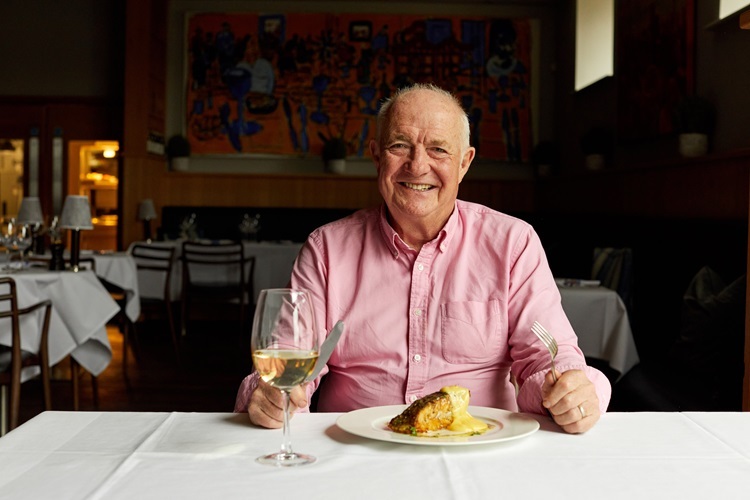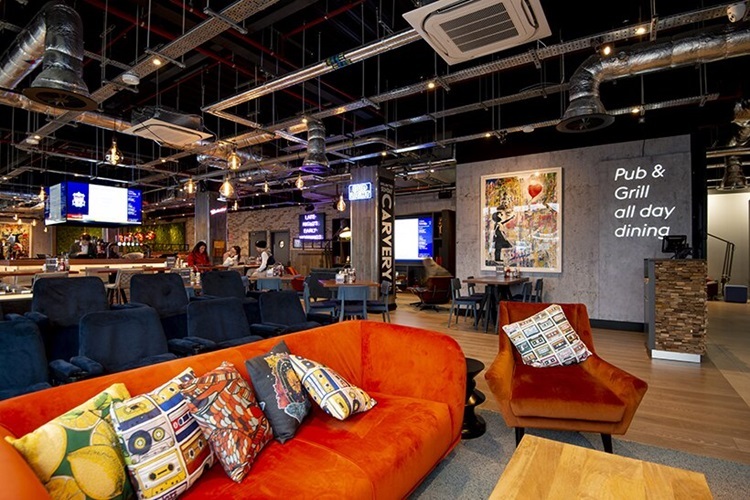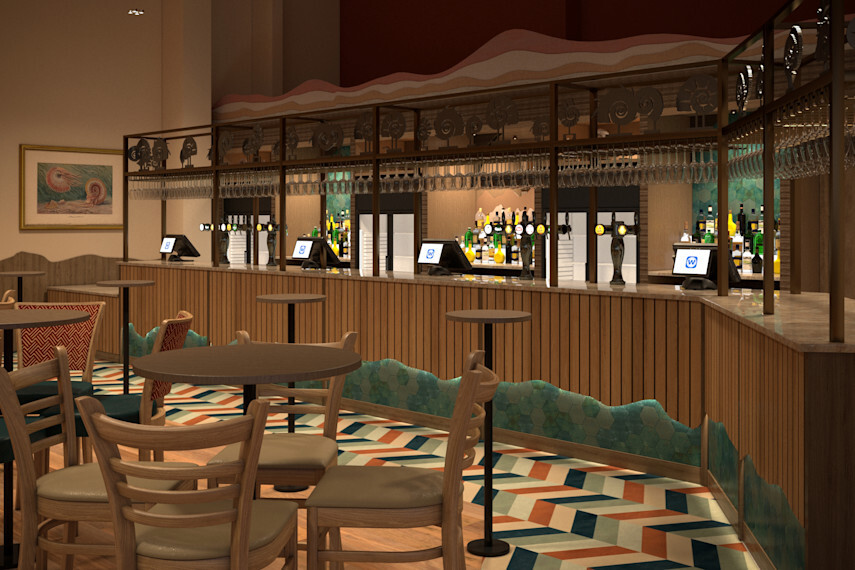Encourage a culture of kindness: lessons from The Caterer’s People Summit
From examining how shows such as the Bear affect hospitality’s reputation to how a warm welcome can help stem the tide of talent, HR experts shared their top tips for operators at The Caterer’s People Summit.
The People Summit 2024, sponsored by Access Hospitality, Fourth and Harri, and hosted at 30 Euston Square in London, took a tough stance on what it takes to attract talent, looking at how roles should be focused on the employee, not the employer, and why priorities have changed to put salaries at the top of people’s list of job requirements.
HR experts offered advice on finding employment from untapped resources, such as ex-offenders, and looked at how to work with the inevitable rise in artificial intelligence in the workplace. Here are the highlights from the day.
Don’t forget to nominate your team for the all new People Awards
Ripping up the rulebook: redefining workplace culture
 Chantal Wilson, people director at game-themed NQ64 Arcade Bars in London, was first on stage with an unequivocal message for employers who want to attract talent: “no more shit jobs”.
Chantal Wilson, people director at game-themed NQ64 Arcade Bars in London, was first on stage with an unequivocal message for employers who want to attract talent: “no more shit jobs”.
She told the audience they have “worn the excuse of low wages for too long”, and added: “I am Canadian and we always have high wage bills. The UK is different. It has become used to cheap labour from the EU. We have not been training [people] for a long time and we have lost talent.”
She introduced the audience to her Smartie test to find the balance between benefits to the employer versus the employee. Operators should analyse their staff contracts, pay and benefits, and put a Smartie in a jar for each element that is truly employee-focused.
“If you only get one day off a week, you’ve got a shit job. If the till is short and you dock staff wages, that is shit. But if you give eight-week rotas in advance, that is good,” she said.
“With the Smarties exercise you begin to see when everything is favourable to the employer. You can see when the balance is off, so create a better balance.
“We have a job problem. Let’s shape the employee-employer relationship for the next decades through good jobs.”
Read more on Chantal Wilson’s session at the summit here
Beyond the screen: rethinking kitchen culture
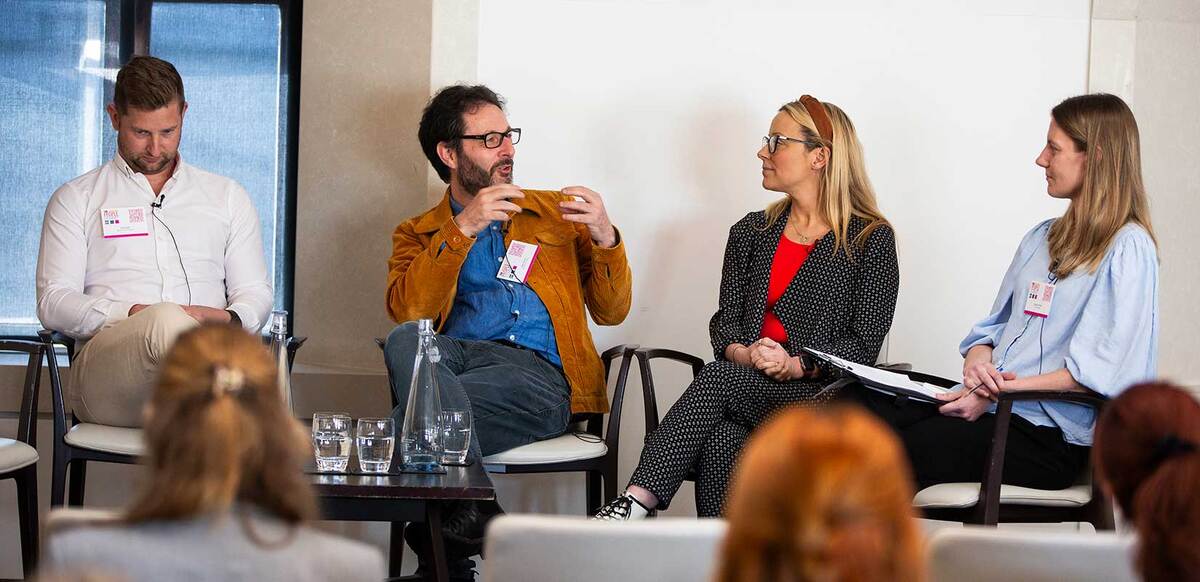
Pictured from left: Kris Hall, Dan Brod, Anna Haugh and Sophie Witts
Sophie Witts, The Caterer’s news editor, hosted a discussion on the impact of television shows and movies such as The Bear, The Menu and Boiling Point, which show the skills and camaraderie of life in a professional kitchen, but also expose the short tempers and long hours that the industry is trying to move away from. Dan Brod, co-founder of the Beckford Group, Kris Hall, founder of the Burnt Chef Project, and Anna Haugh, chef-owner of Myrtle, offered up some ways to create a good working environment.
"We don’t have a recruitment problem, we have a PR problem"
What impact do toxic TV portrayals have on the industry?
Anna Haugh It’s entertainment, not a documentary. I got into the industry because I was hungry for the action and the fire and the people who work for me also enjoy that, so it’s not all totally negative.
Dan Brod It’s also good for the customers, as they can see how hard the job is.
Kris Hall We work with businesses that are helping to ensure that the environments you see on those shows don’t reflect reality, but we do get some feedback where it is the reality. We don’t have a recruitment problem, we have a PR problem.
How to create a positive environment
- Encourage kindness.
- Create a working culture by listening to your staff and bringing them along on decisions – it needs to be a genuine culture, not theoretical.
- The new wave of employees can suffer with anxiety, so someone disagreeing with them can trigger them. Get them buddied up when they join the business and encourage them to take a break if they need to regroup.
- Give them space when they make mistakes: it’s the start of learning to do things right.
- When things go wrong, give each other the benefit of the doubt and talk it out at the end of service.
- One bad apple can infect the whole team. Provide training and awareness, but don’t excuse continual poor behaviour – it can do a lot of damage to your culture and productivity.
- If you need to ask someone to leave, refer to your workplace policy regarding behaviour and remove the emotional element.
Navigating the future: are robots going to steal my job?

Pictured from left: Martin MacPhail, Hannah Swarbrick-Done, Jon Dawson, Christian Berthelsen and Caroline Baldwin
To discuss the advancements in automation and artificial intelligence (AI) and how it is affecting hospitality, Caroline Baldwin, deputy editor at The Caterer talked to Christian Berthelsen, chief technology officer of Fourth, Jon Dawson, chief people officer at the Lore Group, Martin MacPhail, HR director at RBH and Hannah Swarbrick-Done, head of people at Big Fang.
How likely is AI to impact hospitality jobs?
Hannah Swarbrick-Done We need to be ready, but we have got to be careful not to shoehorn AI into our business. Technology or AI is a tool to be used to solve a problem, so check if it is really the solution and measure the impact versus the disruption and the investment. It is ultimately about understanding your problems and seeing whether it would be useful and being brave to say when it isn’t.
Christian Berthelsen The technology is here. The challenge is that we need to invest in training to demystify and educate the entire workforce. One of the first things with change management is trust: do you trust the computer? At the start that level is quite low. The way forward is to help your people become more knowledgeable.
Martin MacPhail We are in the early stages of implementing AI. Technology won’t replace people, but it can increase productivity and efficiency.
How is technology used to improve your operation?
Jon Dawson Four years ago, we were using 22 systems across different countries. We built a platform three years ago to consolidate that. It is still an ongoing journey. With regard to the people function, as a global company, having one system that manages hire-to-retire is an advantage as we scale the business. We use AI for scheduling and job descriptions and all operations managers have real-time payroll reporting based on schedules, which helps them to predict costs.
How can managers embrace technology?
Martin MacPhail Use experts to train them because if people don’t know how to use it correctly, it will defeat the purpose.
Hannah Swarbrick-Done Get the senior leadership team to buy into it. This is about how it impacts their day-to-day lives, so measure that, get clear targets in place and make it relevant.
Christian Berthelsen Make sure the technology is easy to use to create positivity.
Jon Dawson Go into the operation and train people in a natural environment. Don’t do it on a Teams presentation.
Embracing diversity: employing people with disabilities

From left, Mark Costello, Esther Brittan and Patricia Mahon
Since 2016 Hilton has been working with Aurora Foxes, a residential college and hotel, to support people with learning disabilities into the workplace. The Caterer’s senior reporter Jungmin Seo invited Esther Brittan, HR operations manager UK and Ireland at Hilton, Patricia Mahon, general manager at Hilton London Kensington, and Mark Costello, principal of Aurora Foxes, onto the stage to share this success story.
Brittan and Mahon acknowledging that while there can be an initial “fear factor” around employing people with disabilities, support for the employer and employee is available from Foxes, the employee’s parents and other organisations. Mahon pointed out that the first candidate Hilton took on in 2016 is still working in the kitchen and the hotel now employs four staff with learning disabilities.
At Hilton, the employees work alongside buddies who have received coaching, with any adjustments made on a case-by-case basis. Mahon said: “The partnership is key. With one employee, Foxes told us her strengths and her parents told us her needs. Another employee works in the kitchen, and we started by breaking down the tasks in preparation or mise en place, and we have support from Foxes if we have queries.”
Brittan added that the benefits are mutual: “Retention and loyalty is high. We try to get it right for both sides, carving out the roles to lean to their strengths. The commitment of these individuals and sense of belonging also lends itself to the trust and confidence of team members.”
Read more about employing people with learning disabilities here
Crafting excellence: Navigating HR leadership in hospitality

Panellists Dawn Browne, people and talent director at Fuller, Smith & Turner; Justin Johnson, HR director at Elior; Liz McGivern, vice-president of people and culture at Red Carnation Hotels; and Andrew O’Callaghan, people director at Dishoom, discussed how current challenges are reshaping people management.
"We asked the teams what would help them with wellbeing and they asked to have their rotas three weeks in advance"
What are the biggest challenges facing HR today?
Liz McGivern During Covid and Brexit we lost a swathe of middle management who went off to try something else – and didn’t return. For me, middle management is the most important level as it is the conduit between the top level and the teams – without them a lot might come tumbling down.
Dawn Browne For us, the challenge was diversity. After Covid our workforce was made up of more 16- to 17-year-olds. We have [looked at what attracts] 50-year-olds because age diversity helps with team stability.
Andrew O’Callaghan After Covid, recruitment was intense and too fast, so people did not receive the best induction. We were worried about our culture. So how did we get back? We [brought in] ‘welcome-wallas’ [who work alongside new employees] and staff turnover dropped significantly and induction is faster.
What are your top tips on engaging your workforce?
Dawn Browne We asked the teams what would help them with wellbeing and they asked to have their rotas three weeks in advance, which doesn’t cost anything. They didn’t want some of the existing costly benefits, so we replaced them with an online GP, free prescriptions and dental check-ups.
Andrew O’Callaghan Look at other sectors and what they do: pay good rates and offer advance rotas. It is about doing simple things well.
Liz McGivern We need to give opportunities to people and offer specific skills training and blended learning – don’t just talk about it.
Justin Johnson A mantra of mine is that in HR we don’t need to overcomplicate things. Define the employee journey and deliver it simply and consistently.
Flip the script: turning hospitality into talent triumph
James Appleton, director of talent acquisition products at Harri, gave delegates an insight into how they can use online tools to tackle high staff turnover, especially in the first 90 days, through empowering managers to foster a culture of continuous, daily engagement, where employees feel valued and heard.
"The first 30 days are critical if you want to keep new staff"
Appleton said the average annual staff turnover in the industry due to low engagement is 30%, compared with 13% across all industries. He added that people make assumptions about why their staff are leaving, blaming pay or rotas, but there can be other reasons, such as wanting more opportunities to grow in their careers. He told delegates: “Find a way to get information [on what staff are thinking], and use it regularly. The first 30 days are critical if you want to keep new staff.”

Learning director Jamie Campbell used elements of Access Hospitality’s recent salary survey to present a new version of the Maslow Hierarchy, first published in 1943, to help the modern hospitality employer fulfil employee satisfaction. The Maslow Hierarchy depicts five levels of employee need, where physiological need (health) is the greatest requirement, followed by safety, love/belonging, esteem and self-actualisation. Campbell’s new model put non-negotiables such as salary as the greatest need, then stability and health, then engagement enhancers and then perks.
His top recommendations were:
- Evolve - what was effective for your teams two years ago might not be now.
- Put development at the core of your business.
- Ensure you have supportive leadership.
- Make sure people know what the opportunities are.
- Make sure the basics are in place before you build.
- Rotas are better than they were, but not yet where they should be.
Unlocking potential: how hospitality can help ex-offenders
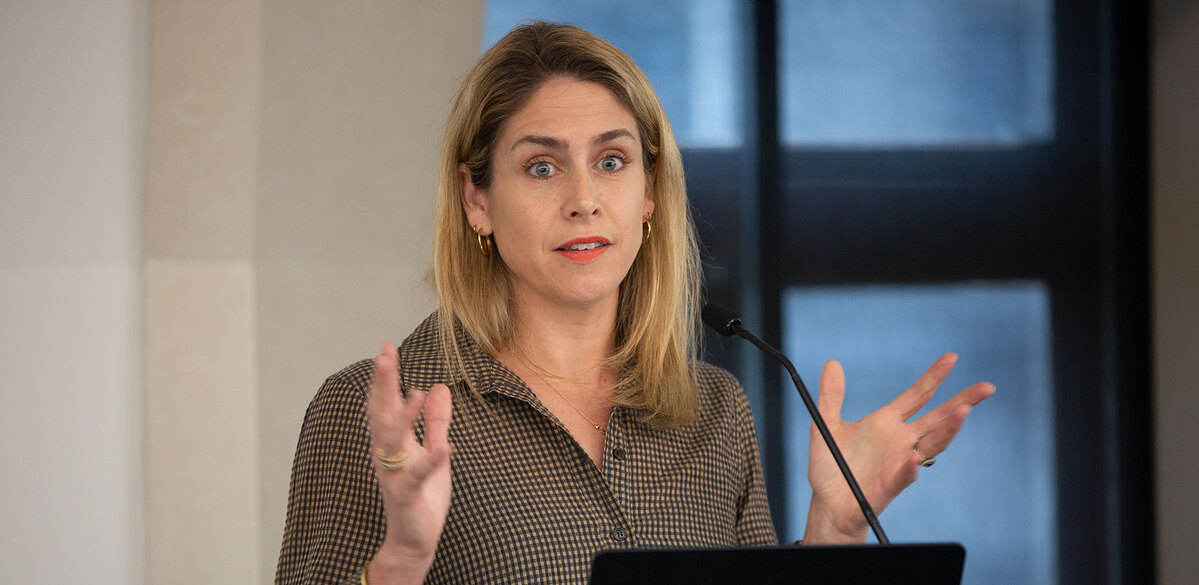
Alex Head, who founded caterer Social Pantry in 2011, has been employing prison-leavers since 2015. She works with organisations and charities as well as with HMP Wandsworth and Feltham Young Offender Institution, where she has opened a training café.
She told the summit that prisoners cost the country £18.1b a year and a quarter will reoffend, but prison leavers who get a job are 9% less likely to offend. Of the employers who have employed ex-offenders, 86% would recommend it to others. To create a working culture attractive to ex-offenders, operators should first get buy-in from leaders and stakeholders, but above all be transparent with everyone. She added that advice is available from bodies such as prison education organisation Novus and Key 4 Life, which supports ex-offenders.
Read more about Alex Head’s employment programme here
Rethinking recruitment: finding workers from overseas
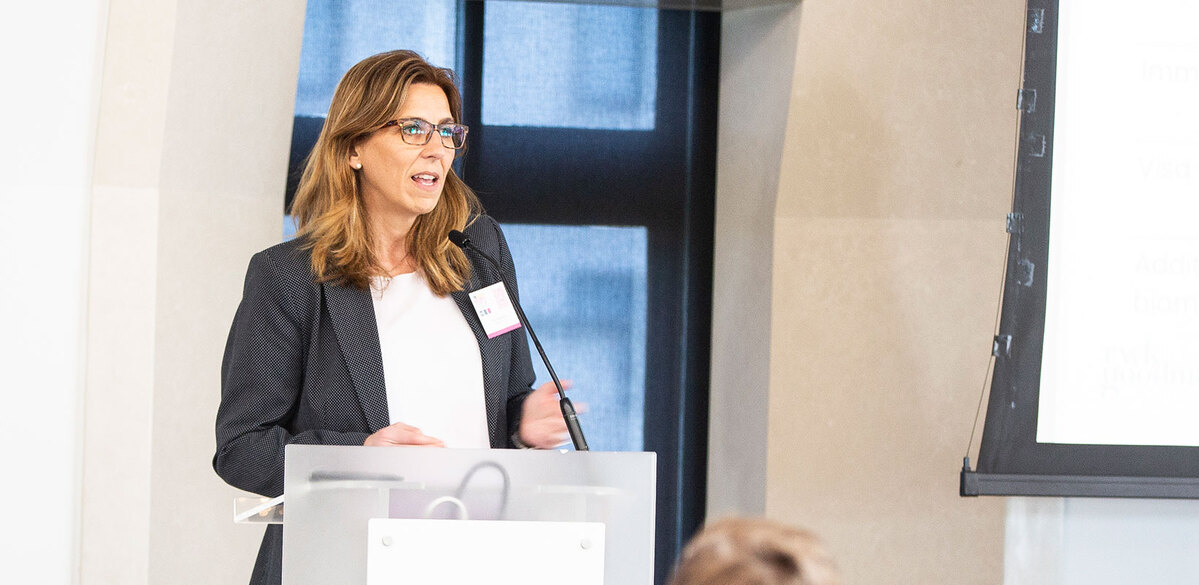
Marta Mendiondo, head of immigration at law practice RWK Goodman, warned that it was cheaper to retain staff than recruit migrant workers. This spring the government increased the minimum salary required for a skilled worker visa in the UK by almost 50% to £38,700 for a 37.5 hour week plus significant fees. So where else can operators recruit?
- The EEA citizen route: anyone working in the UK pre-Brexit can sponsor a family member to bring them over at no cost as long as the relationship existed before Brexit. Children up to 21 are also eligible.
- Ancestry visa: Commonwealth visas don’t need sponsorship and also allow dependents, but they need one UK-born grandparent.
- Youth mobility scheme: A two-year visa that is open to a specific list of nationals (eg Andorra and Uruguay), but doesn’t allow dependents.
- Don’t pay sponsored workers a minimum salary as it is a red flag – they may approve your application if you can afford more.
- If you don’t comply with right-to-work checks and sponsor licence duties you could be subject to an audit – illegal penalties have been raised to £45,000.
The sponsors
Access Hospitality
Access Hospitality was delighted to sponsor The Caterer’s People Summit 2024; an event aligned with our ongoing commitment to ensuring the personal and professional wellbeing of hospitality workers. With a diverse range of speakers from across the hospitality industry, the event delivered insightful discussions, with some excellent conversations that contribute to shaping a positive, inclusive and skilled hospitality industry. It was great to meet with so many new and familiar faces and we’re looking forward to the next event.
Fourth
Reach greater heights with Fourth’s AI-driven Workforce and Inventory Management Platform, empowering you to build loyal teams, overcome tight margins and deliver exceptional customer service. We are a leader in data-driven workforce and inventory technology for the retail, restaurant and hospitality sectors. Proudly serving 15,000 customers across 100,000 sites globally, with 2.5 million users.
To discover how we can help you to simplify your operations and boost efficiency and profitability, please get in touch. We would love to hear from you. Contact uk.fourth.com, call 020 7534 3700 or email hello@fourth.com
Harri
Hiring frontline workers is extremely time-consuming and costly, especially in hospitality, due to high turnover and the stereotype that careers are not created in the industry. Reducing turnover can help build an enduring and successful business. Harri Engage makes connecting frontline teams where they already work easier—from measuring sentiment and sharing news to giving leaders a tool to offer support, predict turnover and intervene before it’s too late. The result is clear – a fast-growing sandwich chain decreased turnover within the first 90 days to 19% from 68%. Harri remains committed to putting the frontline first – how can we help you do the same?
Learn more at harri.com/engagement



